Surprising Effects of Eating Blackberries, Says Dietitian
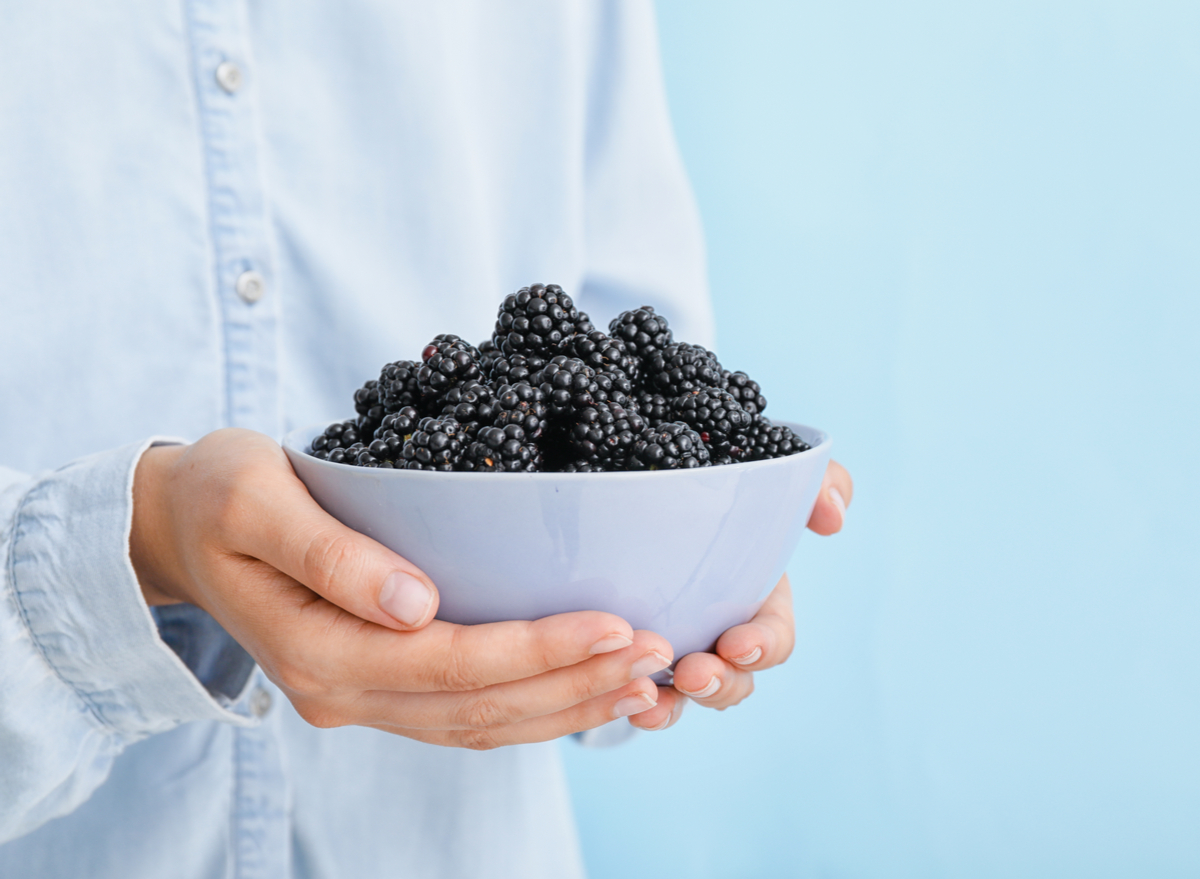
There aren't many things that are as satisfying as biting into a juicy blackberry on a warm summer day. Those dark purple berries that are full of edible seeds and offer a tangy-sweet taste are a quintessential summertime food that can elevate our salads, cocktails, and even our breakfast oatmeal.
As a fruit that is found mostly in both the eastern and Pacific regions of North America, as well as certain areas of Europe, blackberries are available for many of us to enjoy at our local grocery stores, farmers' markets, and if you have a green thumb, our backyard. And if you aren't able to get your hands on fresh blackberries, frozen options are thankfully available year-round.
Blackberries are low in calories, have no added sugar, and are chock-full of important nutrients. One cup of fresh blackberries contains:
- 60 calories
- 14 grams of carbohydrates
- 7.5 grams of fiber
- 42 mg calcium
- 29 mg magnesium
- 30 mg vitamin C
Plus, like other berries, blackberries contain antioxidant polyphenols, including anthocyanin (which gives this fruit its unique hue).
Along with the unbelievable taste that blackberries offer, eating them can give your body some major advantages if you enjoy them on a regular basis. If you are a blackberry aficionado (as many people are), here are five surprising effects of eating these black beauties.
Read on, and for more on how to eat healthy, don't miss The #1 Best Juice to Drink Every Day, Says Science.
You may lose weight.
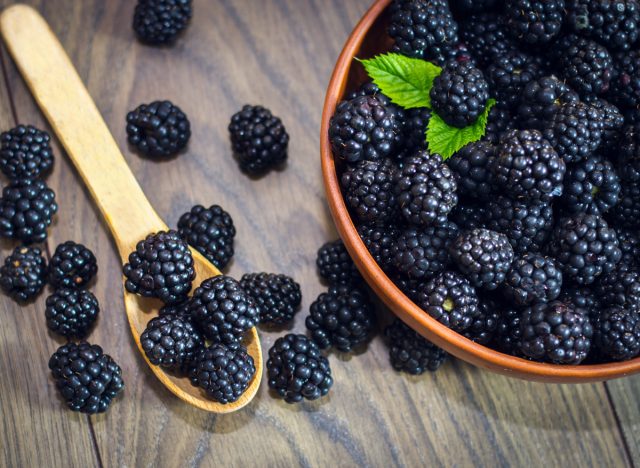
Eating fruit is linked to positive effects on weight management. Blackberries are naturally fat and sodium-free, have no added sugars, and are relatively low in calories. Plus, the fiber found in these berries can help promote satiety, which can help support a healthy weight in the long run.
You will get immune support.
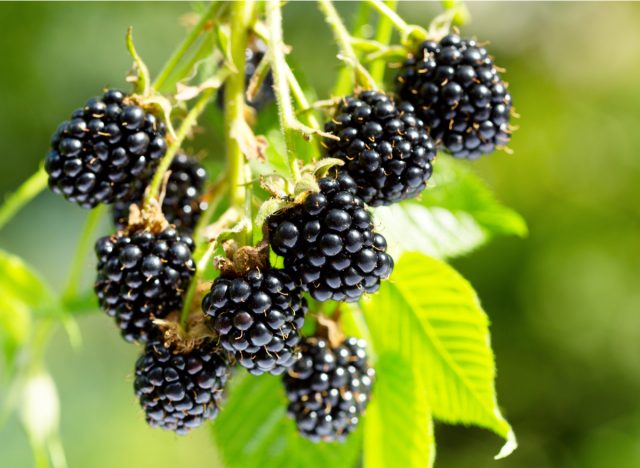
Vitamin C is the darling nutrient of the immune health-support world. Vitamin C contributes to immune defense and promotes the antioxidant scavenging activity, ultimately supporting a person's overall health. One cup of fresh blackberries provides 30 mg of vitamin C, which is over 30% of the RDA.
You may see cognitive improvements.
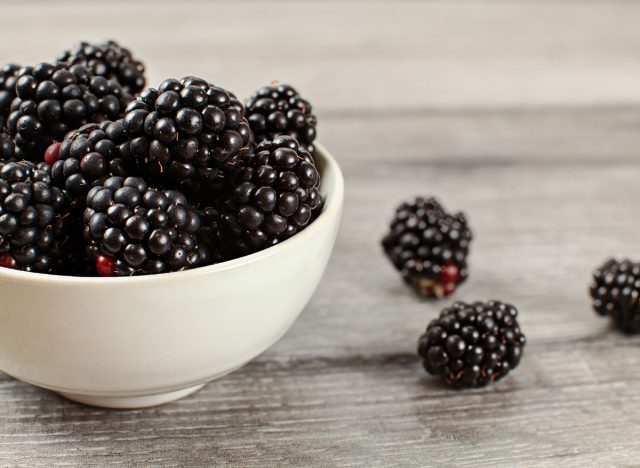
Blackberries contain a unique polyphenol called anthocyanin, which is also found in other foods that are naturally blue or purple in color (like blueberries, purple cabbage, and purple potatoes). Data shows that this polyphenol is linked to significant improvements in memory, attention, and psychomotor speed, making blackberries a brain-health powerhouse food.
You may see improvements in your gut microbiome.
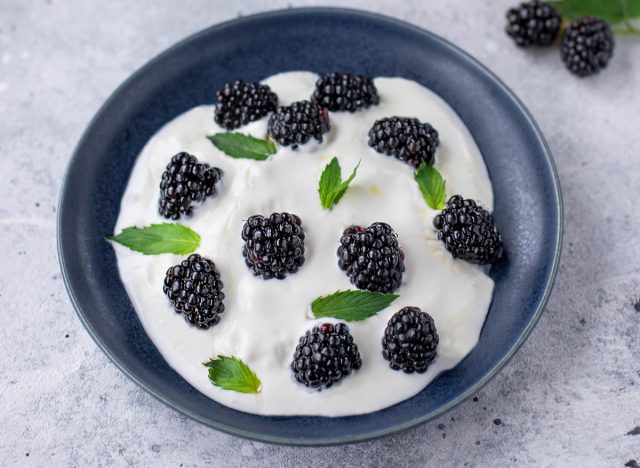
Your gut microbiome can have a profound impact on your gut health, your immune health, and even your mental health, and it is impacted by certain dietary and lifestyle choices. Consumption of berries, including blackberries, can cause a strong shift in the gastrointestinal bacterial communities and support a healthy gut microbiome.
You may have reduced inflammation.
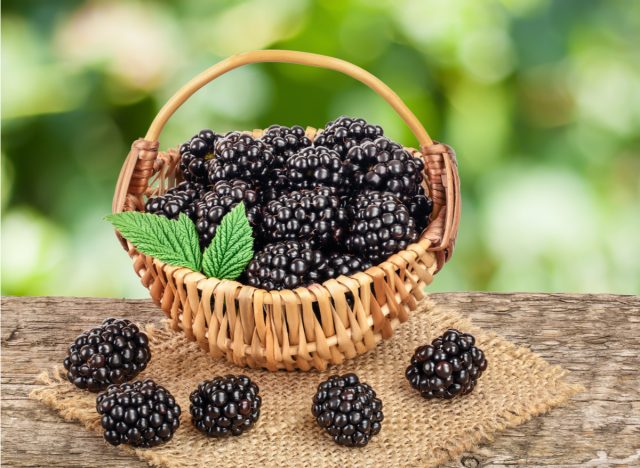
Chronic inflammation is linked to ischemic heart disease, stroke, cancer, and other unsavory conditions. Data shows that berries can combat inflammation, particularly obesity-induced inflammation.









